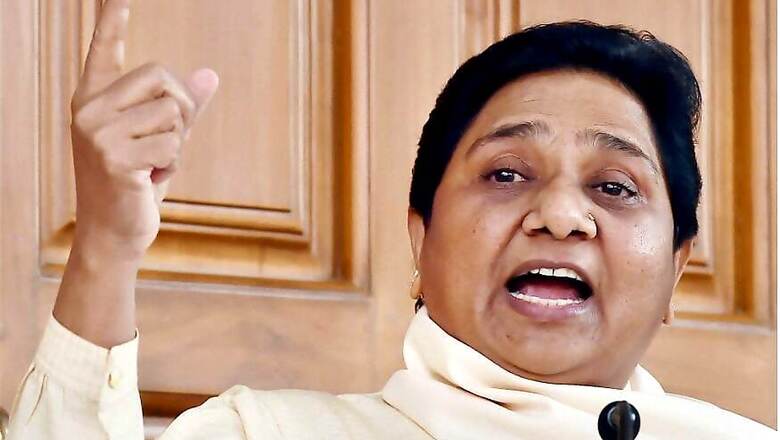
views
Lucknow: 'Brahamin Shankh Bajayega, Hathi aage Jayega' (Brahmin will play the conch in the victory march of the elephant).
This slogan was a hallmark of BSP's successful campaign for 2007 assembly elections in Uttar Pradesh, a rare political combine of Dalits and Brahmins.
Almost a decade later, after successive withering of this social alliance in 2012 assembly polls and then in 2014 Lok sabha polls by the 'Modi wave', BSP chief Mayawati is now revisiting it with a changed strategy.
So while working out a successful Dalit-Muslim formula might be a top priority, wooing Brahmins back is also high on the agenda. But this time it is with a different strategy which will focus on 85 reserved seats of UP assembly.
Slogans like 'Hathi nahin Ganesh hai', 'Brahma Vishnu Mahesh hai' or 'Hathi Sankh Bajayega' may not be the battle cry but work to mobilise Brahmins on the reserve seats of the state has already begun with party starting series of 'bhaichara samellans' in all these constituencies. The party's Brahmin face, Satish Chandra Mishra, will lead the mission.
A lawyer by profession and member of Rajya Sabha, Mishra is a busy man these days visiting one reserve constituency after the other addressing the bhaichara samellans. The concern is to prevent shifting of Brahmin votes to other parties, specially the BJP on Reserved seats.
In 2014 general elections amidst the Modi wave, upper caste specially Brahmins have shifted almost entirely towards the BJP. The BSP is now trying to win back the Brahmin support back on at least the reserved seats where they have no choice of any candidate from their community.
While Mishra had been busy across reserved constituencies specially in Eastern UP, Awadh and Bundelkhand, Ramveer Upadhyay is the key Brahmin face for the party in west UP. Mishra alone has addressed around 100 rallies across the reserved constituencies.
Mishra told CNN News18, "Before 2007 it was hardly a dozen Brahmin MLA in UP assembly of 403 seats. Brahmins should recall that it was BSP who brought back the lost prestige to Brahmins. From 12, the number of Brahmin MLAs' went up to 40 in 2007 assembly elections.'.
He is confident that 16 percent Brahmin and 21 percent Dalit vote together alone can ensure a victory.
But the question is why efforts to work out this arithmetic only on reserved seats ..is The party not sure of this arithmetic on general seats? The BSP general secretary said, "BSP believes in taking all communities together, Brahmins were and will be with BSP. We are focusing on reserve seats because they have a different dynamics."
The BJP is quick to dismiss BSP's claims. BJP's national general secretary and Rajya Sabha MP Bhupendra Yadav said, "Mishra himself had been rejected by his very own community, what weight then his campaign has?'
"BJP is focusing on the good work and development-oriented agenda of Modi Govt. It is this agenda which is acting as a catalyst for all communities including Brahmins," he added.
Congress MLA Akhilesh Pratap Singh to dismisses BSP's move. "People are fed up of both Mayawati and Modi. People will vote in favour of the secular progressive alliance of the Congress and the Samajwadi party," he said.
Political observers, however, feel that a shift of upper caste towards the BJP and growing concerns about a possible polarisation against BSP's massive Muslim outreach has forced Mayawati to relook at her Brahmin strategy.
Prashant Trivedi, the Assistant professor with Lucknow-based Giri Institute of Social studies said, "Mayawati knows if she can swing the 85 reserved seats in her favour, the battle is half won. The remaining job will then be well within her reach through the ambitious Dalit-Muslim Formula which together constitutes around 37 percent of vote share."




















Comments
0 comment